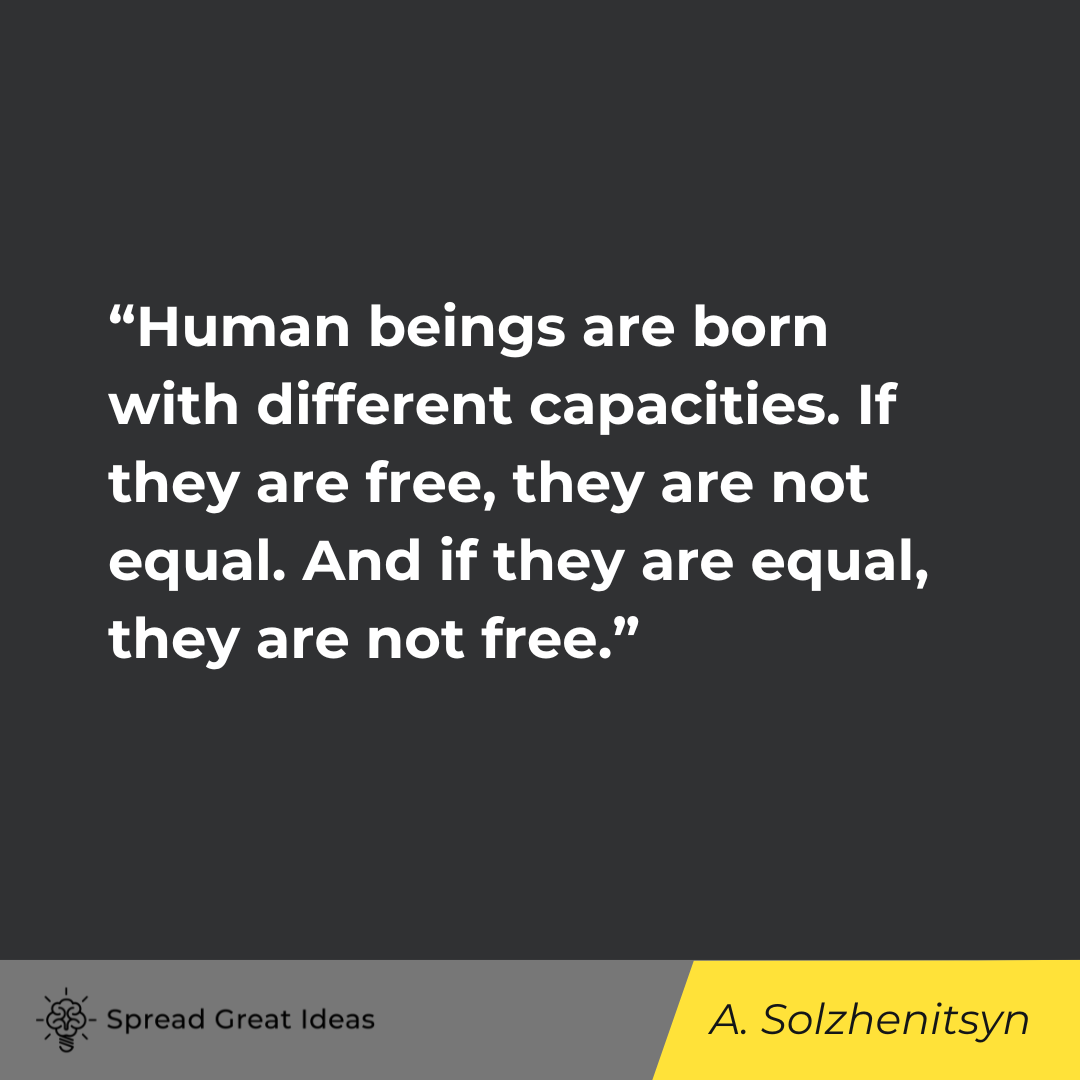Table of Contents

While one can debate the virtues of the free market, there are some things about it that are clear: First, it has raised more people out of poverty than any utopian economic system proffered as an alternative. Second, it does an excellent job at distributing resources — far better than the heavy hand of centralized government planning.
Indeed, “freedom” was largely understood throughout the history of modern political philosophy to mean free markets as well as freedom of conscience and movement and the other essential freedoms. It is no mistake that the most brutal regimes in human history have treated the notion of property rights as little more than an obstacle on the road to human equality.
The competition of a free and open market leads to greater goods to meet greater needs of greater numbers of people. Closing down free and open markets delegates the task of deciding what and how much of something people need to a centralized, and often unaccountable, bureaucrat.
None of this is to say that free market capitalism is without its problems. But it has nothing in the way of meaningful alternatives. The men who speak below understood this. See what they have to say about the benefits — and the comparative pitfalls — of the free market.
Quotes About Competition and the Free Market
Arthur Melvin Okun
“The market, if it can be kept honest and competitive, does provide very strong incentives for work effort and productive contributions. In their absence, society would thrash about for alternative incentives-some unreliable, like altruism; some perilous like collective loyalty; some intolerable, like coercion or oppression.”
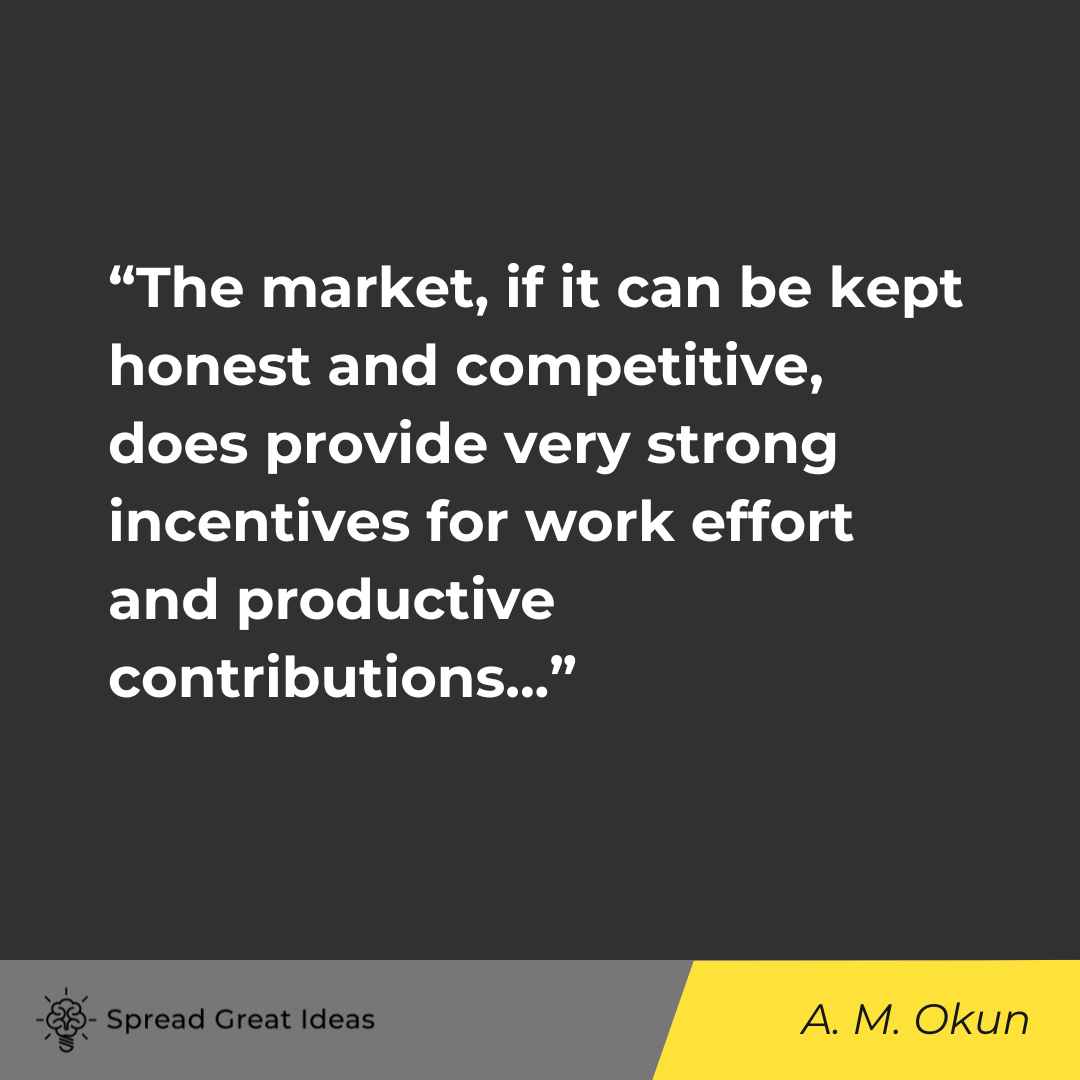
Calvin Coolidge
“When once the right of the individual to liberty and equality is admitted, there is no escape from the conclusion that he alone is entitled to the rewards of his own industry. Any other conclusion would necessarily imply either privilege or servitude.”
– Calvin Coolidge, Address to the Holy Name Society, Washington, D.C., September 21, 1924
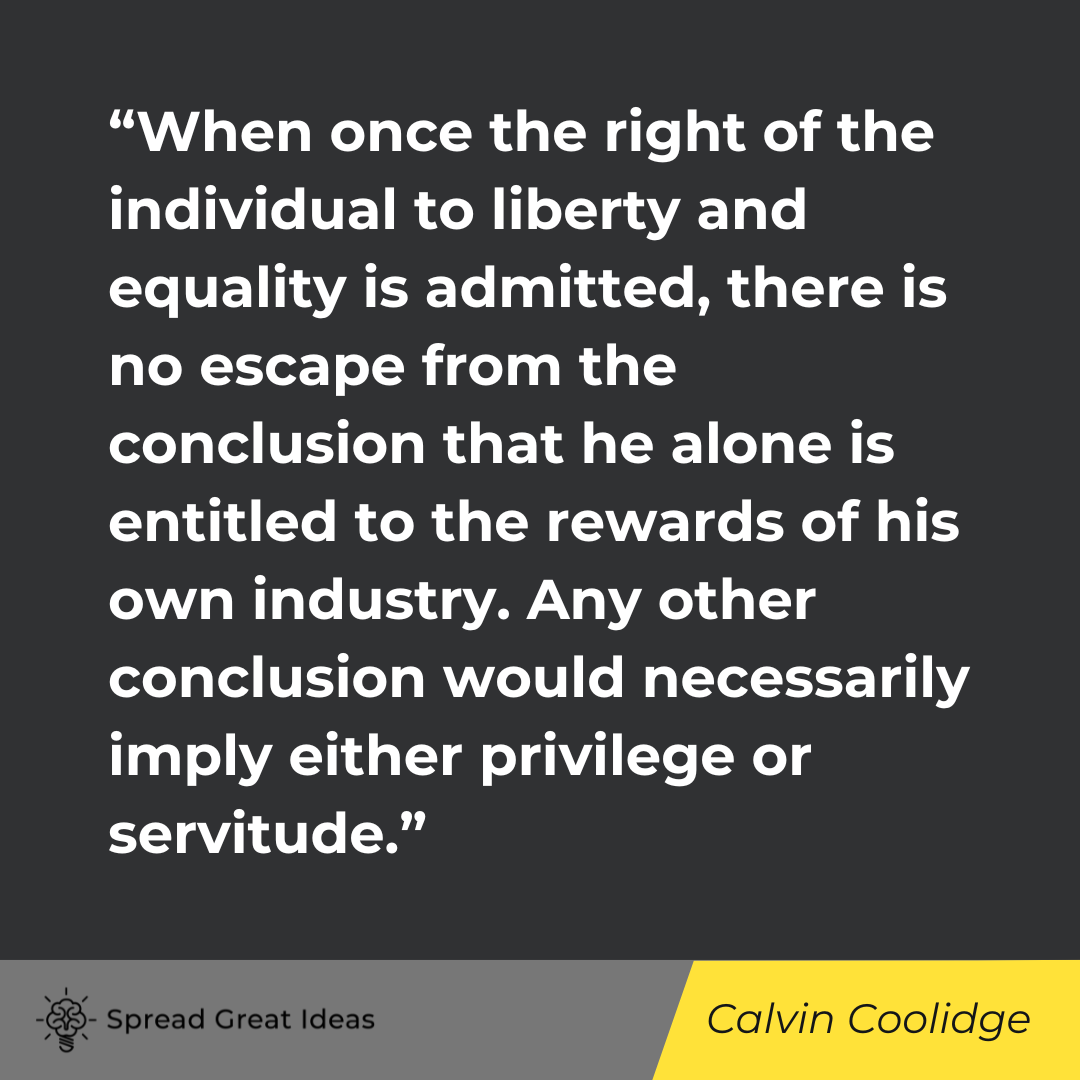
“I would like it if the country could think as little as possible about the Government and give their time and attention more undividedly about the conduct of the private business of the country.”
– Calvin Coolidge, The Talkative President
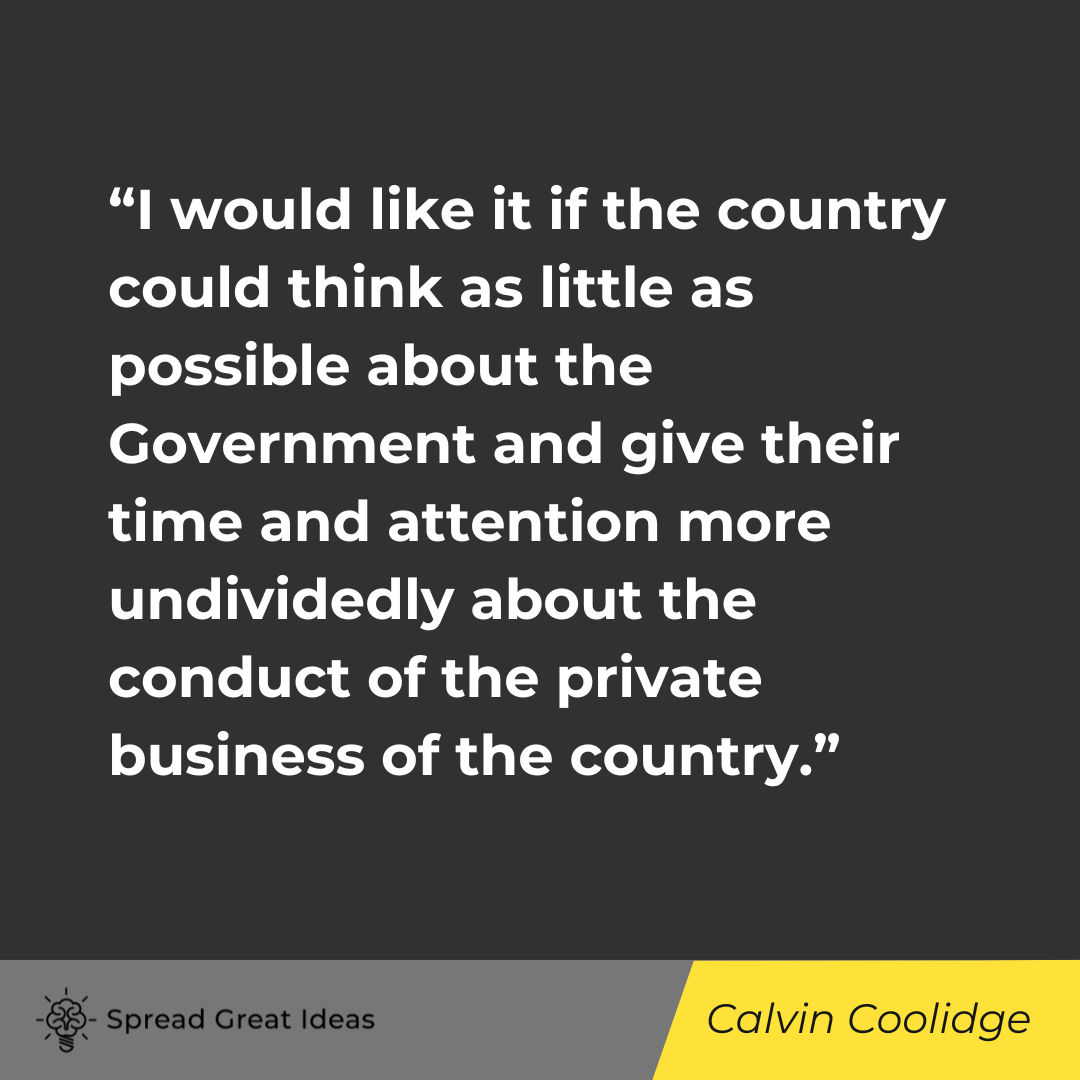
“Where commerce has flourished there civilization has increased… Today it is not the battle fleet, but the mercantile marine which in the end will determine the destiny of nations.”
– Calvin Coolidge, Brockton Chamber of Commerce, Brockton, MA, April, 11, 1916
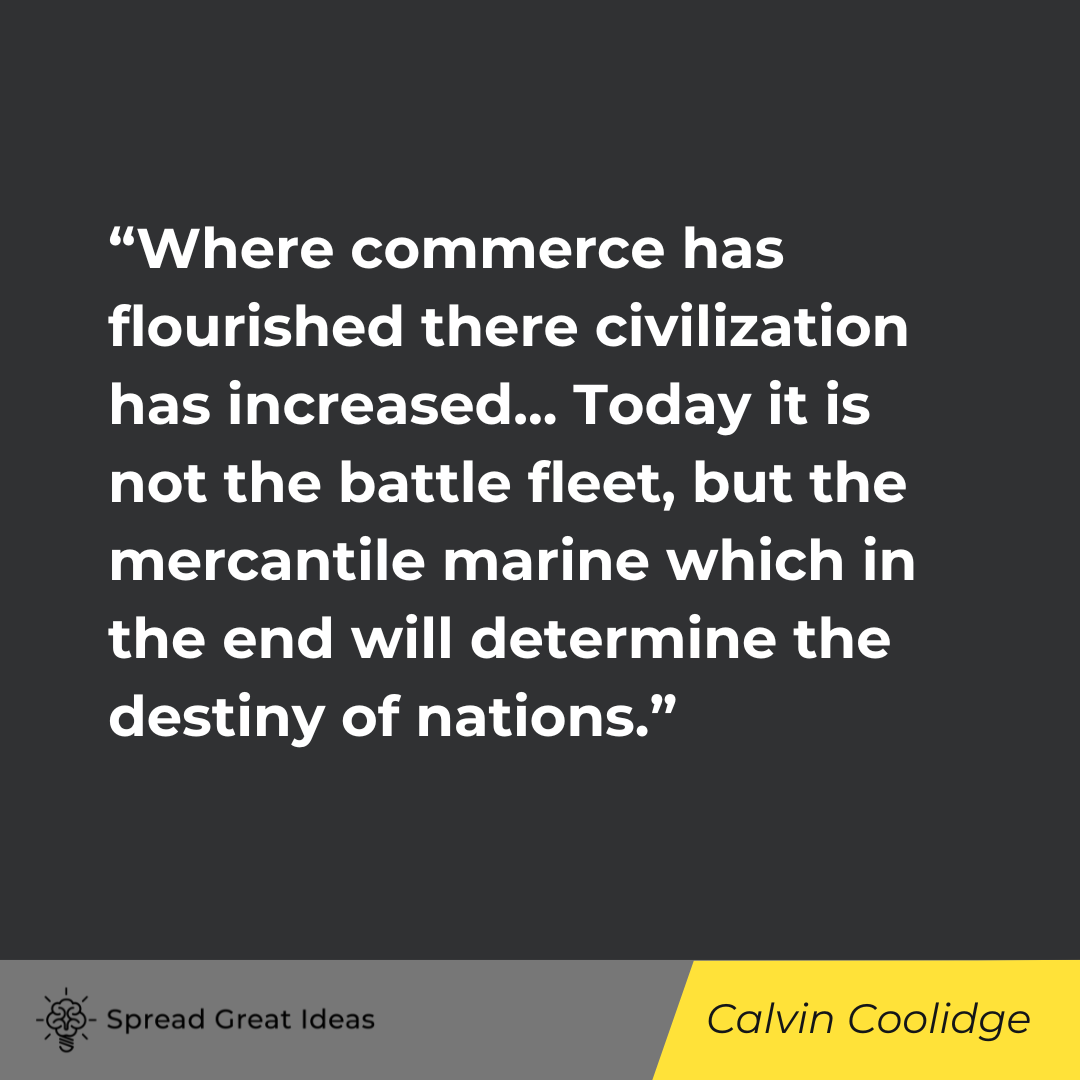
“I favor the policy of economy…because I wish to save people…Economy is idealism in its most practical form.”
– Calvin Coolidge, Inaugural Address, March 4, 1925
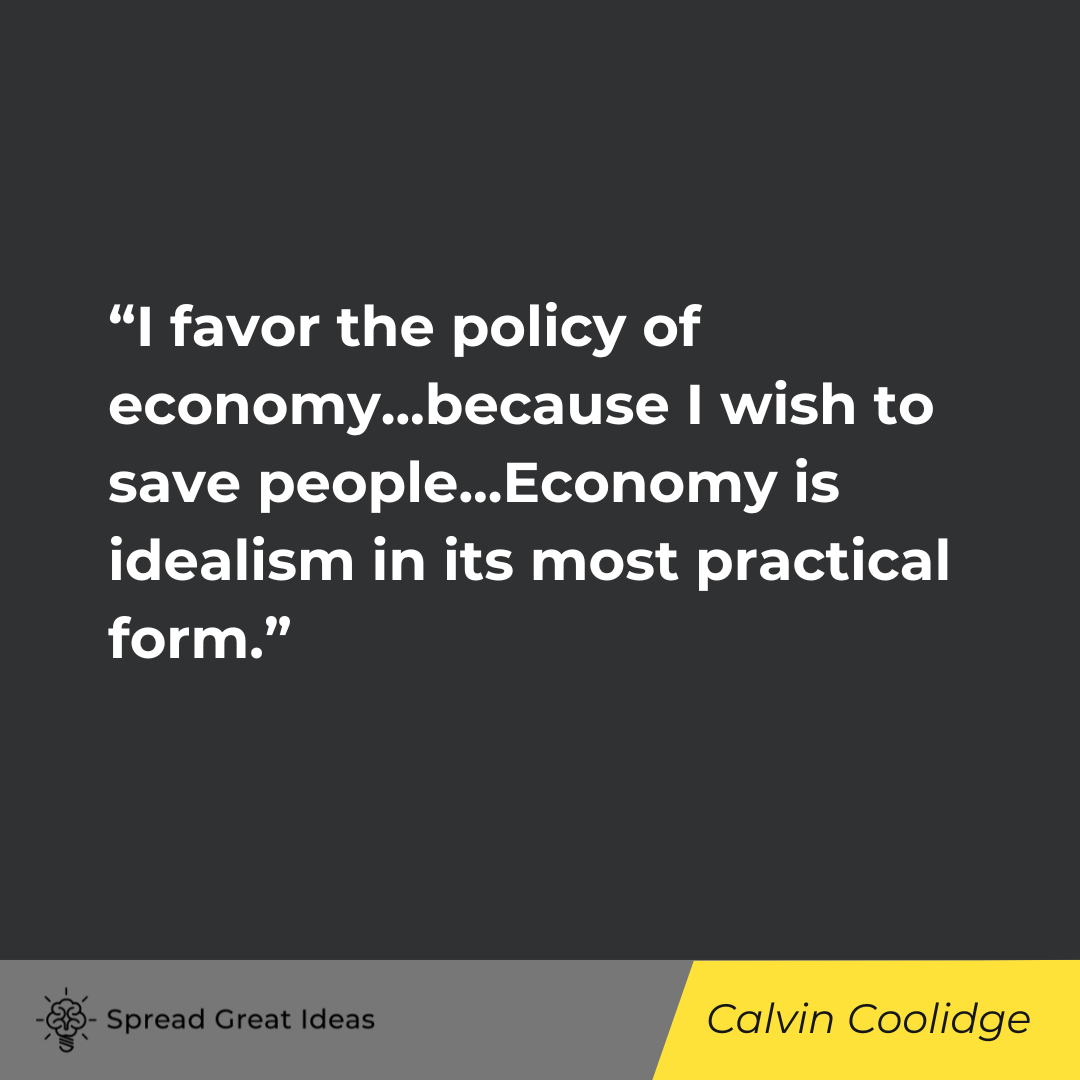
Jim Rohn
“America is unique because it offers you an economic ladder to climb. And here’s what’s exciting: It’s the bottom of the ladder that’s crowded, not the top.”
– Jim Rohn, The Treasury of Quotes
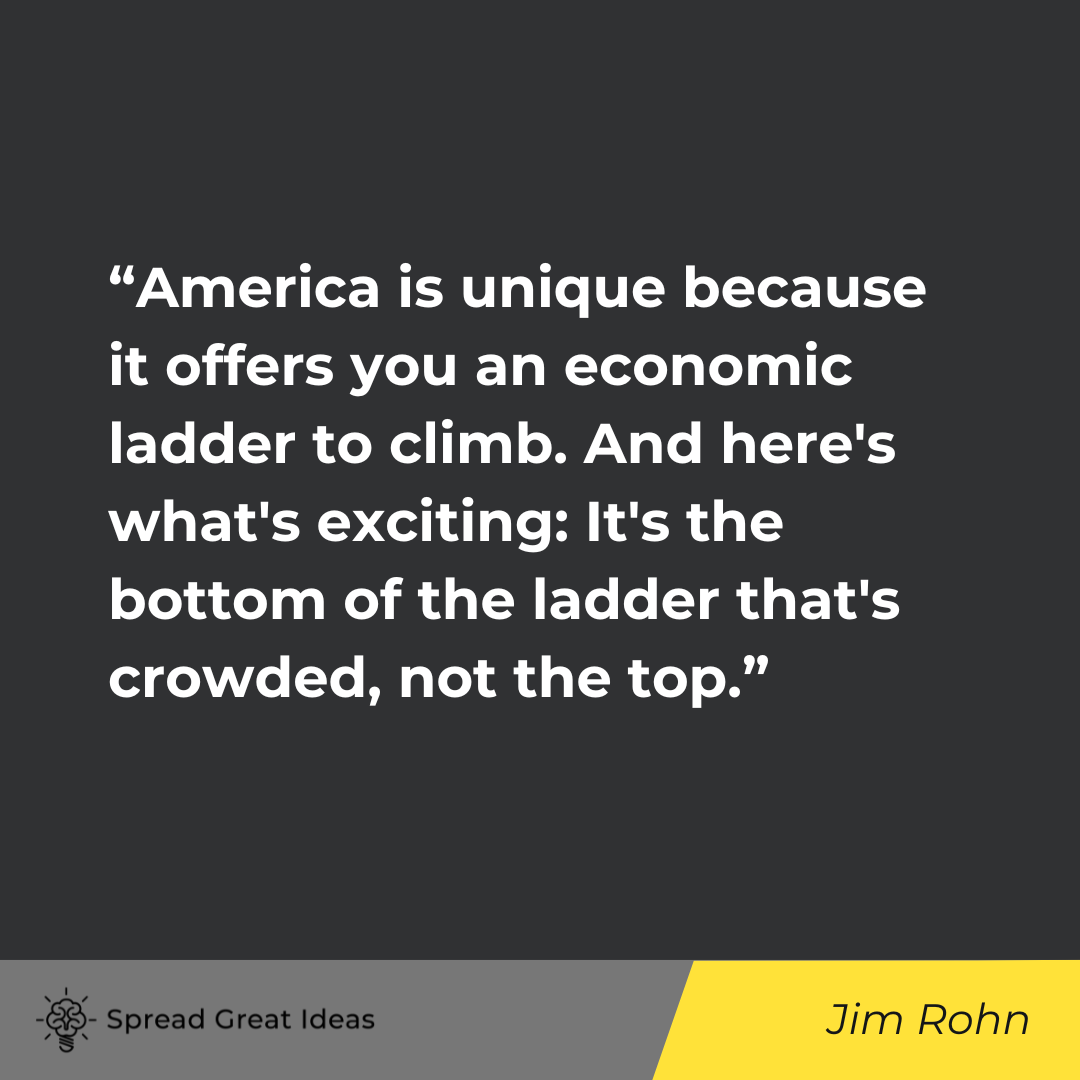
Niccolò Machiavelli
“Again, a Prince should show himself a patron of merit, and should honour those who excel in every art. He ought accordingly to encourage his subjects by enabling them to pursue their callings, whether mercantile, agricultural, or any other, in security, so that this man shall not be deterred from beautifying his possessions from the apprehension that they may be taken from him, or that other refrain from opening a trade through fear of taxes; and he should provide rewards for those who desire so to employ themselves, and for all who are disposed in any way to add to the greatness of his City or State.”

Gordon Gekko
“The point is, ladies and gentleman, that greed, for lack of a better word, is good. Greed is right, greed works. Greed clarifies, cuts through, and captures the essence of the evolutionary spirit. Greed, in all of its forms; greed for life, for money, for love, knowledge has marked the upward surge of mankind.”
– Gordon Gekko’s character, Wall Street
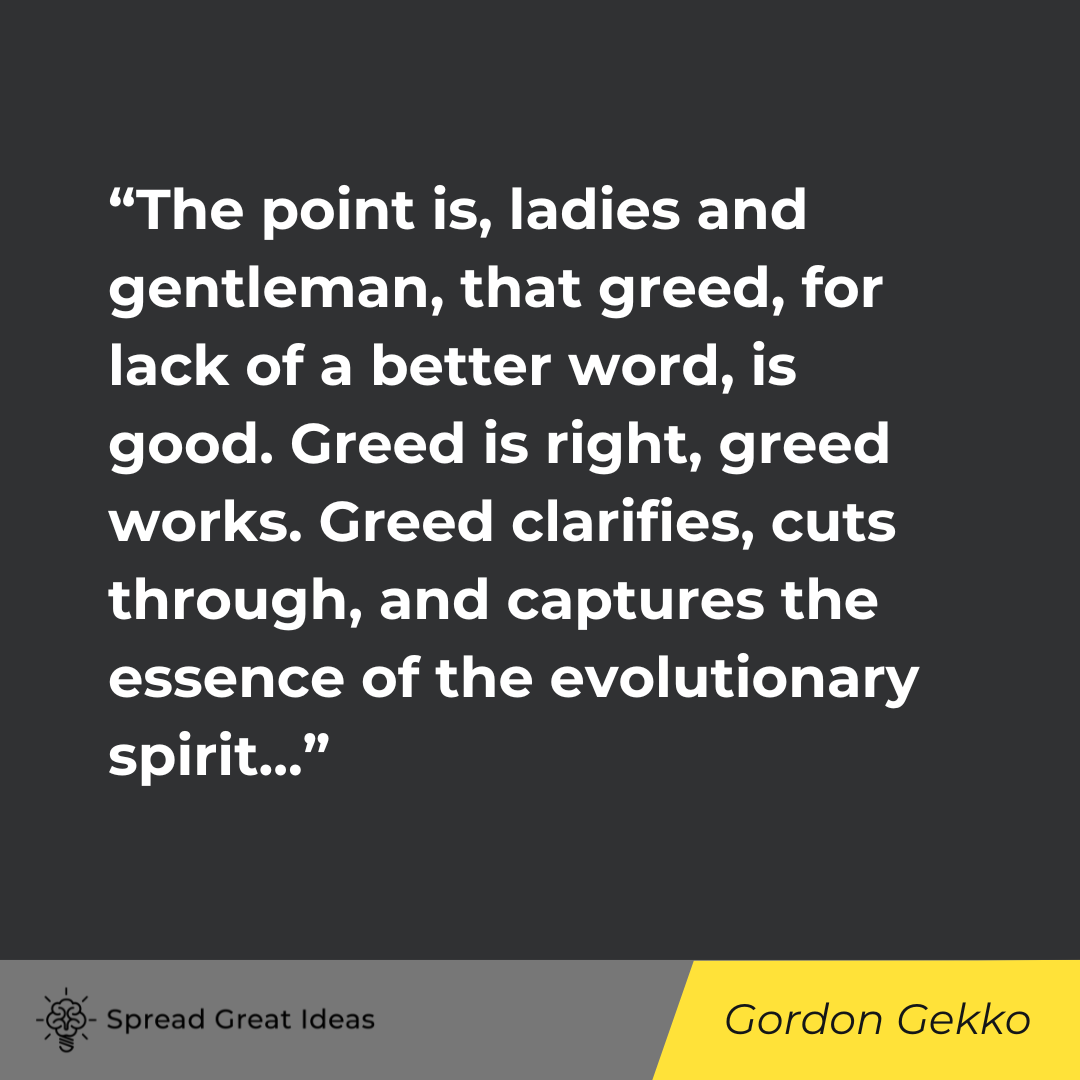
Bernard Mandeville
“Then leave Complaints: Fools only strive
To make a Great an honest Hive.
T’ enjoy the World’s Conveniences,
Be famed in War, Yet live in Ease
Without great Vices, is a vain
Eutopia seated in the Brain.
Fraud, Luxury, and Pride must live
Whilst we the Benefits receive.
Hunger’s a dreadful Plague, no doubt,
Yet who digests or strives without?
Do we not owe the Growth of Wine
To the dry shabby crooked Vine?”
– Bernard Mandeville, The Fable of the Bees

Murray Rothbard
“Free-market capitalism is a network of free and voluntary exchanges in which producers work, produce, and exchange their products for the products of others through prices voluntarily arrived at.”
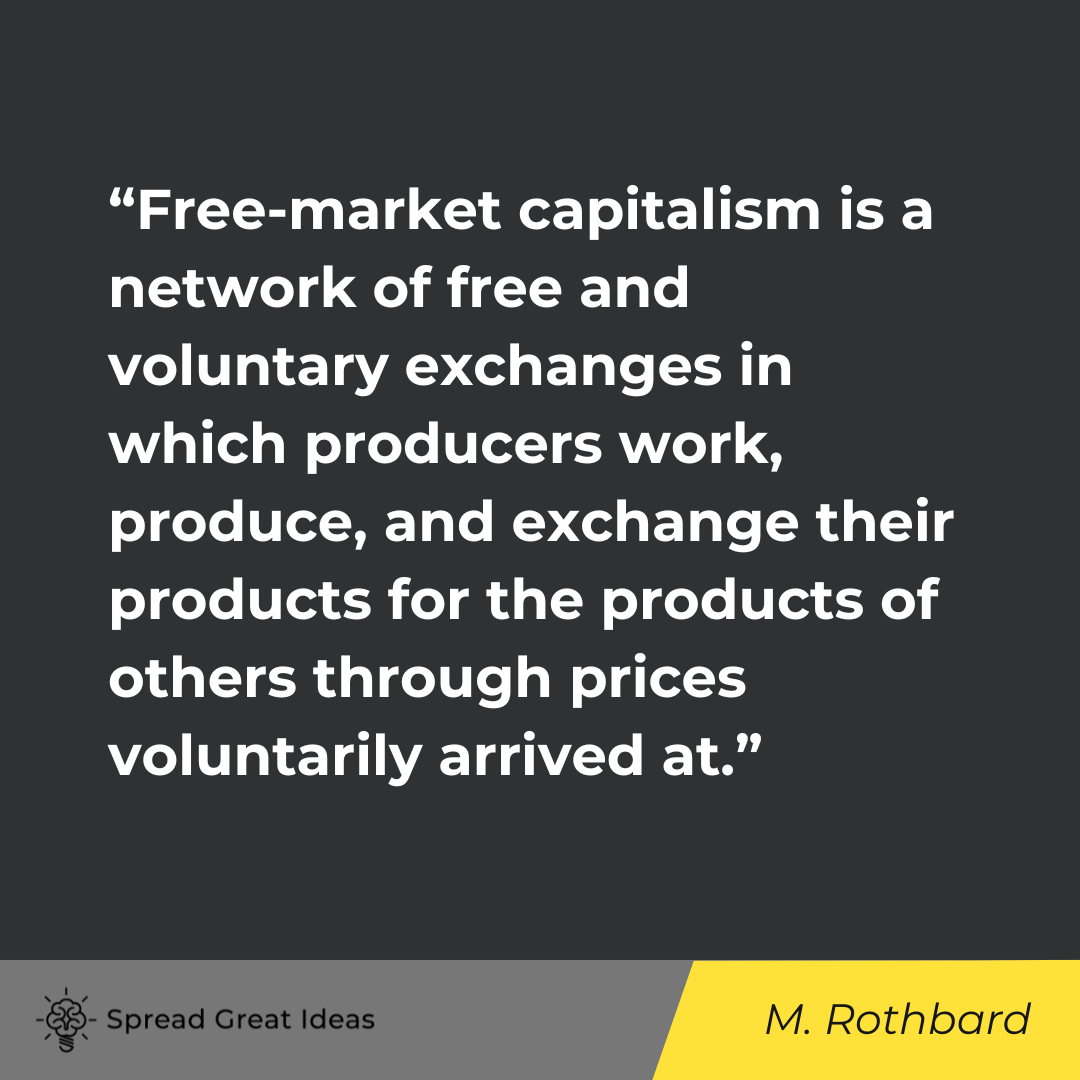
“The process of exchange enables man to ascend from primitive isolation to civilization: it enormously widens his opportunities and the market for his wares; it enables him to invest in machines and other “high-order capital goods”; … it forms a pattern of exchanges – the free market – which enables him to calculate economically the benefits and the costs of highly complex methods and aggregates of production.”
– Murray Rothbard, The Ethics of Liberty
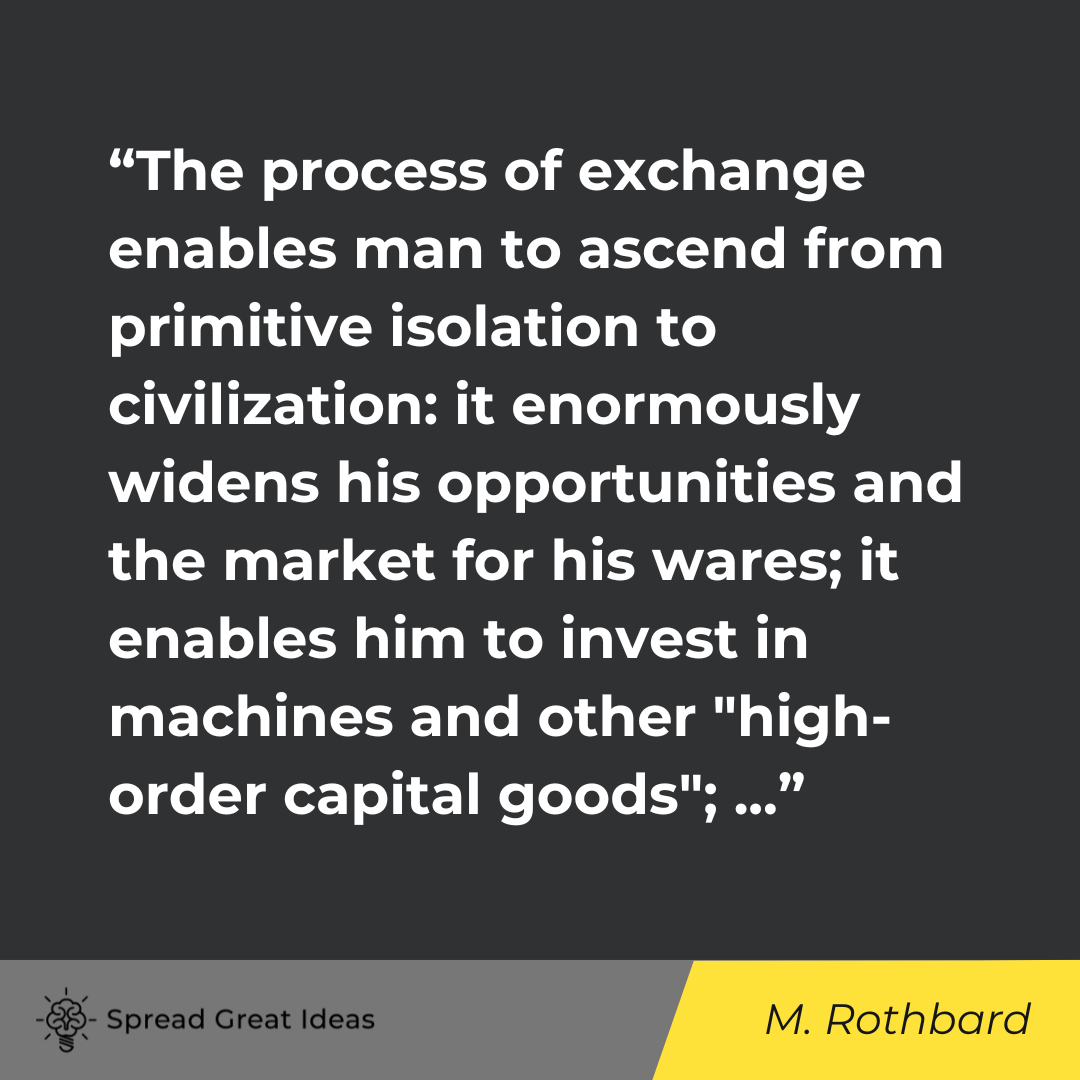
Aleksandr Solzhenitsyn
“After all, as Prokhorov said, “Money nowadays comes in two stories.” What Westerners could comprehend “two-story money”? A lathe operator during the war received, after deductions, eight hundred rubles a month, and bread cost 140 rubles on the open market. And that meant that in the course of one month he did not earn enough for even six kilos of bread, over and above his ration. In other words, he could not bring home even seven ounces a day for his whole family! But at the same time he did… live. With frank and open impudence they paid the workers an unreal wage, and let them go and seek “the second story.” And the person who paid our plasterer [at the Kaluga Gates prison camp] insane money [200 rubles] for his evening’s work also got to the “second story” on his own in some particular way. Thus it was that the socialist system triumphed, but only on paper. The old ways—tenacious, flexible—never died out, as a result of either curses or persecution by the prosecutors.”
– Aleksandr Solzhenitsyn, The Gulag Archipelago, 1918-1956: An Experiment in Literary Investigation
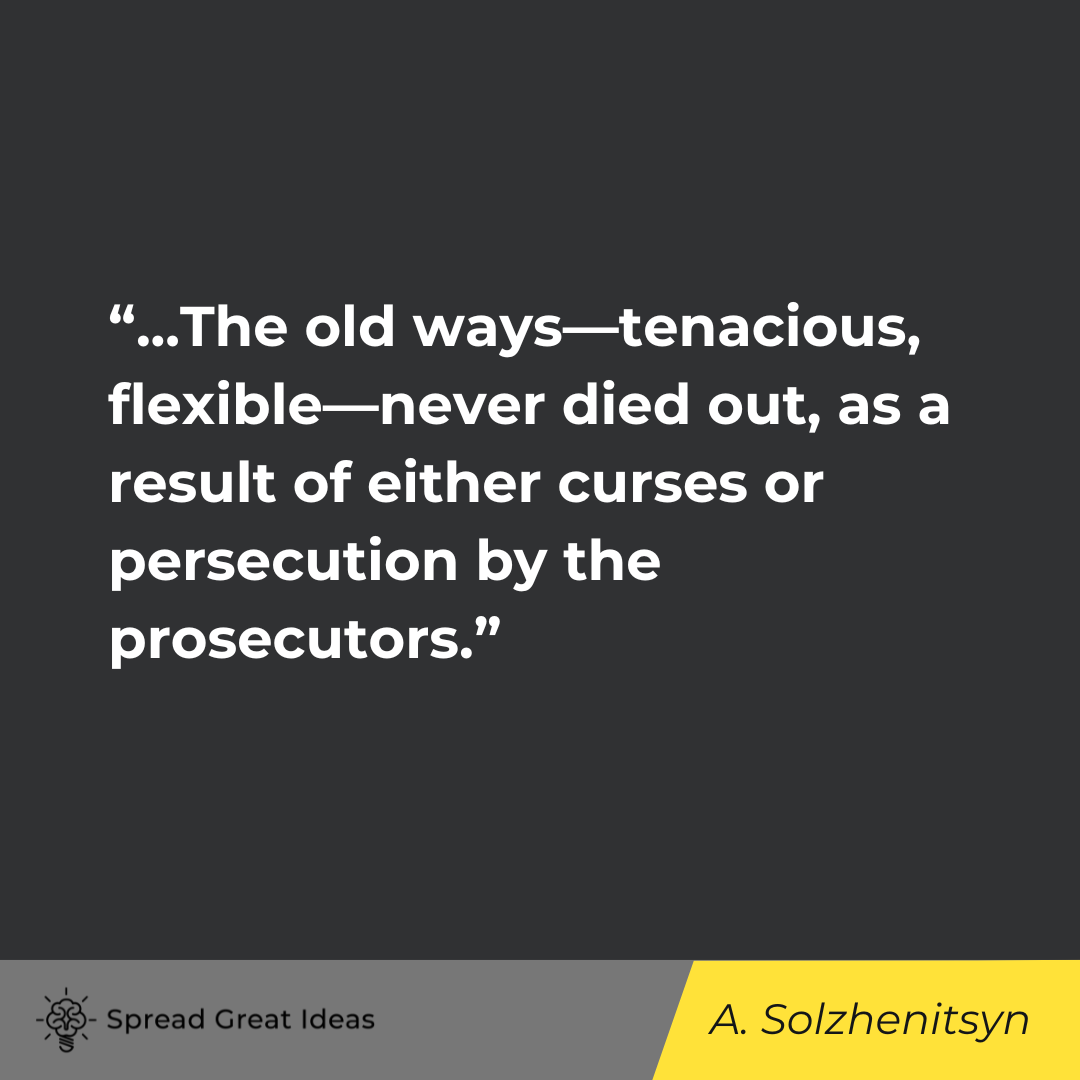
“Human beings are born with different capacities. If they are free, they are not equal. And if they are equal, they are not free.”
